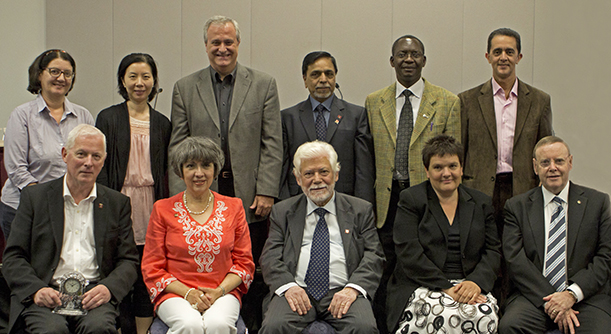Every month we put the spotlight on one of our members. Today, we are delighted to put the International Bureau for Epilepsy to our now famous short questionnaire!
- What’s on top of your agenda?
IBE has a vision of the world where ignorance and fear about epilepsy are replaced by understanding and care. Some years ago, a former member of our executive board commented that “the history of epilepsy can be summarised as 4,000 years of ignorance, stigma and discrimination, followed by 100 years of knowledge, stigma and discrimination”. Unfortunately, this is still the position even in Europe.
Top of our agenda in 2016 are our regional congresses and, in particular, the 14th European Conference on Epilepsy & Society, which takes place in Prague on 15th and 16th September. Through Epilepsy Alliance Europe, a joint initiative of IBE and our medical counterpart the International League Against Epilepsy, we are working on an application for a European Regional Network focussed on rare epilepsies.
- Why does your organisation exist?
IBE exists to improve the social condition and quality of life of people with epilepsy and their carers.
Epilepsy is one of the most common serious diseases affecting more than 50 million people globally. This means that it affects about 1% of the population.
IBE was established in 1961 as an organisation of laypersons and professionals interested in the medical and non-medical aspects of epilepsy. IBE addresses such social problems as education, employment, insurance, driving licence restrictions and public awareness among persons with epilepsy and their families.
The Bureau also works in close liaison with the International League Against Epilepsy (ILAE), an organisation of medical professionals involved in the medical and scientific issues of epilepsy.
- What is your biggest achievement as an organisation?
IBE works closely with other bodies and organizations, such as the World Health Organization, with which IBE has been in official working relations for many years; as a member in Special Consultative Status on the Economic and Social Council of the United Nations (ECOSOC); and as a member of CoNGO – the Conference of Non-Governmental Organisations. At European level, we are a member of the European Federation of Neurological Associations (EFNA) and now, of course, EPF!
This unique understanding in lobbying at EU and WHO levels led to the passing of the EU Declaration on Epilepsy in 2011 and the approval of a World Health Assembly/WHO Resolution on the global impact of epilepsy in 2015. IBE is also a member of the EMA Patient and Consumer Affairs Working Party and contributes regularly to reviewing of patient information leaflets for various medicines.
- What is for you the key benefit of your organisation’s involvement in EPF?
The grass roots approach of EPF with national member organisations ensures that it has its feet on the ground. It also provides an excellent listening ear to what is happening in Europe.
The workshops organised by EPF provide great opportunities for EPF members to be informed on a range of pertinent issues.
Networking is a big plus and we have a lot to learn from each other especially with regards to funding activities, new models of empowering patients and organising networking activities for persons with epilepsy, their relatives and friends.
And, of course, there is no need to mention that the high esteem in which EPF is held is a further benefit of membership.
- What’s the main misconception about your disease area?
Depending on where you live in the world, the misconception will differ. In many developed countries, there is still the misconception that epilepsy is contagious. It is also assumed that there is only one kind of epilepsy – tonic clonic – with the patient dropping to the ground, losing consciousness, shaking uncontrollably and foaming at the mouth. But there are more than 40 types of epilepsy. In developing regions, in particular in Africa, the main misconception is that people with epilepsy are controlled by the devil or by evil spirits. All these misconceptions result in stigma!
Epilepsy is more than a medical diagnosis; it affects almost every aspect in the life of the person diagnosed with the disease – imposing serious psychosocial and social burdens on both the person with epilepsy and their families. For many people with epilepsy, the stigma attached to the disease is more difficult to deal with than the disease itself.
Of concern is the fact that it is estimated that, globally, up to 100,000 premature deaths each year may be attributable to epilepsy. Many of these could be prevented with appropriate medication and treatment.
